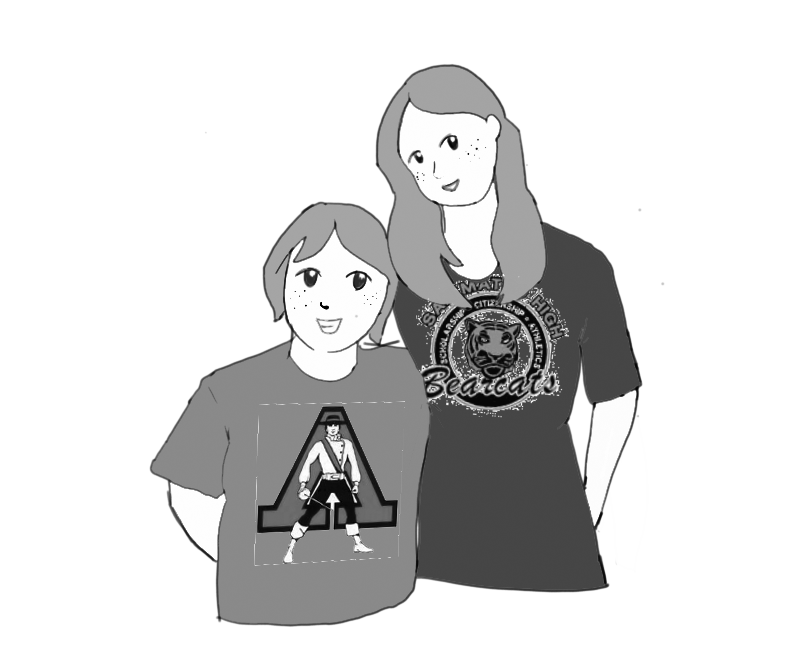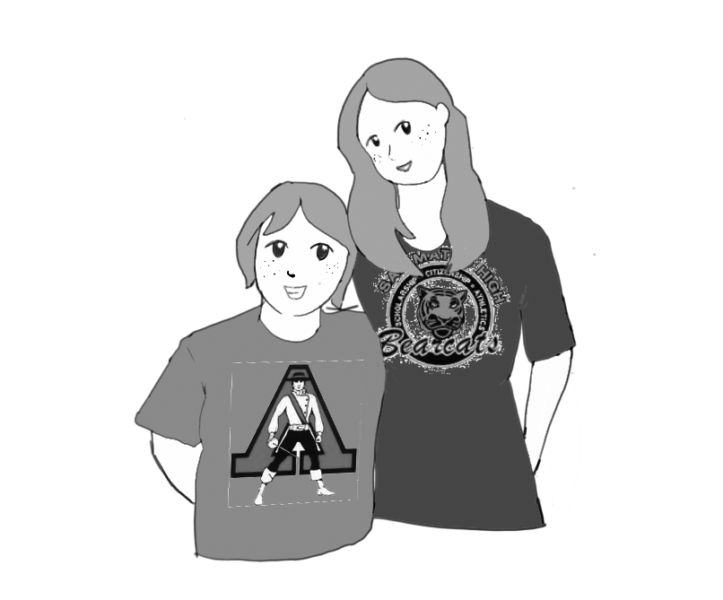
Two siblings walk through their high school hallways, but they are 15 miles away from each other. They’re from the same family, but they study at different schools. Some Aragon families choose to send their children to different schools. For some, it’s a decision of educational purposes or just preference. These situations affect relationships and sometimes in unexpected ways.
For junior Phoebe Pineda’s family, the decision to send her and her brother to different schools was based on education.
“[My brother] is in Special [Education]… [and] I heard that there’s a Hillsdale house system, and we just thought that Hillsdale had a better Special Ed program comparatively,” said Pineda. “We figured it would be easier for him to adjust if he was in the house system, and also we thought it would be easier on him academically.”
Junior Beata Gold’s family, on the other hand, sends their children to different schools because of personal preference.
“[We go to different schools] because freshman year, he went to Burlingame High School and I went to Burlingame Middle School,” Gold said. “He tried to go to Aragon for the first semester of sophomore year and he didn’t like it, so he went back to BHS.”
Sophomore Erin McElroy offers a different perspective: academic opportunity.
“My sister went to Hillsdale because that’s where our house was zoned for,” said McElroy. “I came to Aragon instead because I wanted to learn Japanese.”
Siblings at different schools enjoy some benefits, including the opportunity to distinguish themselves as individuals, instead of falling under the image of their sibling. Junior Myleen Hoffman went to school with her brother for a year before he switched schools.
“Well he did come here first, so it was kind of that way [being labeled as her brother’s sister] and is kind of that way with upperclassmen and with some of the other teachers he had,” she said. “But now that he’s gone, I can try to make my own way.”
McElroy acknowledges this sentiment, but presents a different opinion.
“I can understand people going around and saying, ‘No, you’re blank’s sister,’ because I do pretty much the same stuff as [my sister] and it would be pretty difficult [to distinguish myself],” said McElroy “But [it would] also be nice to have some of my sister’s friends because freshman year I didn’t really know how to make friends that well. So, I think it would have been nice to have that boost to have my sister and her friends helping me out.”

This idea extends to creating a unique identity in the eyes of teachers as well.
Alumna Nicole Wallace can relate.
“Teachers quickly realized how different [me and my older sister] were to each other and thus treated us accordingly. I was involved in different activities than my sister too, so there wasn’t much overlap in our presence at Aragon. With my younger sister, Mia, I definitely appreciated that we had our distance,” Wallace said. “We are only one grade apart, so sometimes our friends from alternate schools would overlap. That alone made me realize how much it bothered me with our overlapping social lives, and I know it would have been much worse if we went to the same school.”
This time spent apart has the power to change relationships, whether for the better or worse. For instance, not going to the same school may reduce tension or make it harder to relate. For Gold, this situation is for the better.
“I think it’s better that we don’t go to the same school,” said Gold. “We don’t get tired of each other.”
Alumnus Gael Cruanes, reports a different experience.
“My brother always tried to distance himself from me, so maybe different schools affected that,” he said. I think we were able to relate the same amount.”
“It’s also nice because you see enough of each other at home and you don’t really have to see each other at school either,” Pineda said. “We’ve always gone to different schools and we’ve always had this distinct identity independent of our relationship at home because we’ve never gone to the same school.”
Going to different schools may be beneficial to the students, but with it comes a downside: logistical difficulties. However, many families just learn to adapt.
“The only time when there were logistical conflicts were on Back to School nights, or other events like that. My parents would either split up or my mom would go to both while prioritizing certain classes from each school,” said Wallace. “For supporting school through sports, donations or [Parent Teacher Student Organization] involvements, my mom thinks it would have been better just to devote time and energy to one school.”
Going to a different school than a sibling is a unique predicament in that it can affect the life of the students and family both negatively and positively. Students can grow apart from their siblings, but also be given the chance to flourish and pursue lives independent of their brothers or sisters.




